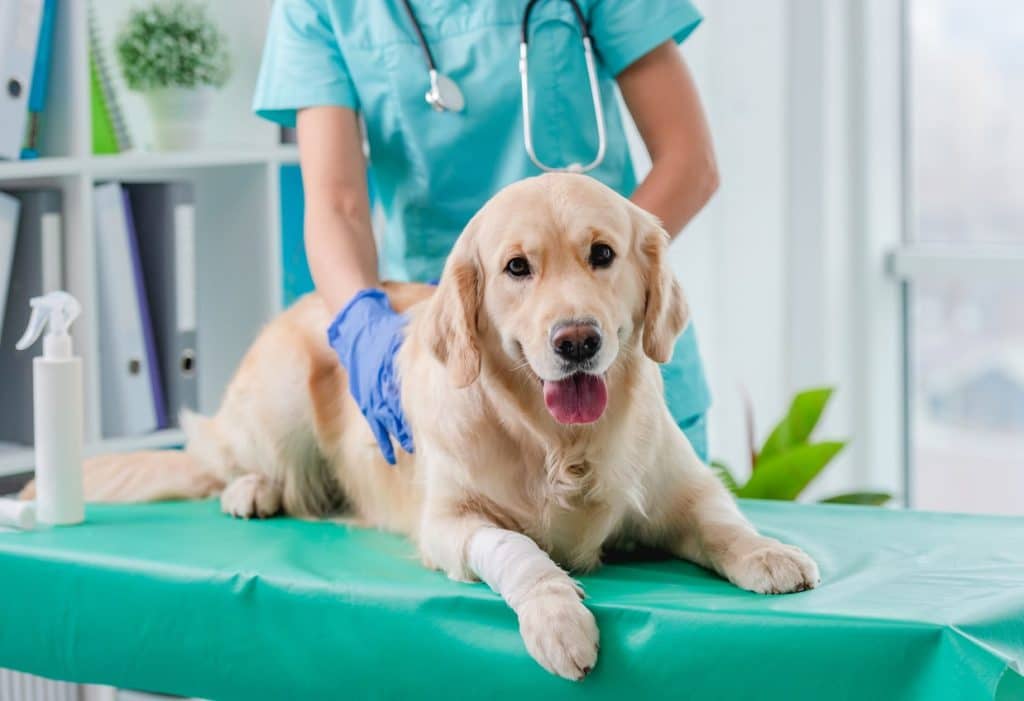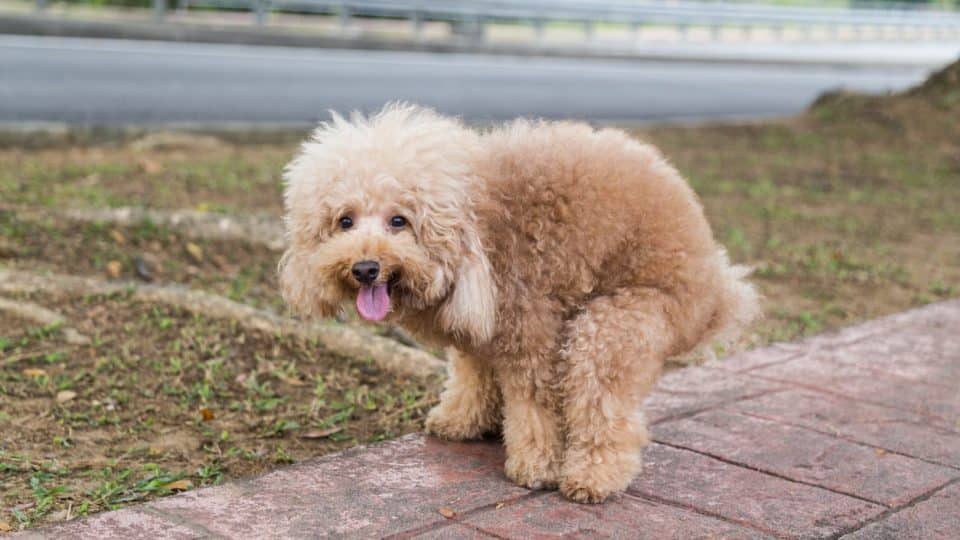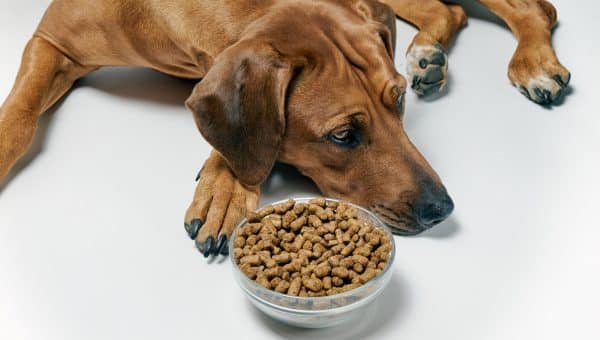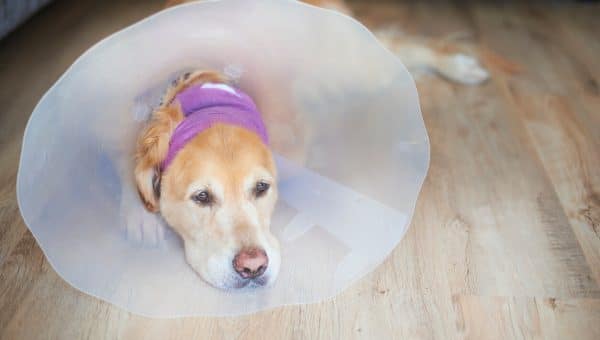- Not a substitute for professional veterinary help.
Staying up to date with your dog’s pooping habits can be difficult. However, knowing how often your dog is pooping is important for spotting any signs of distress. One of the most common dog poop problems is constipation. Constipated dogs have difficulty passing normal stools on a regular basis. Their stools are usually small, dry, and rock-hard and are passed infrequently.
So how often should a healthy dog be pooping? “Most healthy adults will pass one or two solid poops each day,” says Linda Simon, MVB, a veterinary surgeon with RSPCA. She says an adult dog skipping their poop for one day is rarely cause for concern. However, if they haven’t passed a stool in 48 to 72 hours, take a trip to the vet.
Below, we’ll explore common causes of dog constipation, comprehensive signs, and possible home treatments.
What Causes Constipation in Dogs?
Constipation isn’t a one-size-fits-all poop problem. Dogs might get back up due to a poor diet, dehydration, various medical issues, and environmental challenges.
Diet
Not surprisingly, what goes into your dog’s stomach greatly impacts what comes out. Dogs who aren’t consuming enough liquid or fiber in their diet are more susceptible to constipation.
Additionally, dogs who love to eat difficult-to-digest items such as hair, bones, and sticks can also have difficulty passing these types of objects through their digestive system.
Medical issues
Dr. Simon explains that dogs who have recently undergone surgery sometimes experience constipation due to the anesthesia.
Other medical problems that can lead to constipation in dogs include:
- Pain that makes “assuming the posture” difficult
- Pelvic injuries or abnormalities
- Diseases of the colon, such as megacolon (enlarged colon)
- Hormonal diseases such as hypothyroidism
- Tumors or masses in the colon or rectum
Peristaltic waves move stool through the colon to the rectum for expulsion. If these waves decrease or stop, your dog is more likely to become constipated.
Lifestyle
Your dog’s lifestyle can also impact their ability to remove waste effectively. First, dogs who aren’t getting enough exercise and live more sedentary lifestyles are prone to constipation. Additionally, your dog’s emotional state can also cause constipation. Stressed or anxious dogs may be reluctant to go to the bathroom and can become constipated from holding their stool in.
Finally, your dog’s fur could be causing constipation. Dogs with long hair can sometimes form an obstruction in their rear end due to the fur matting, which prevents the effective passage of waste.
7 Signs Your Dog’s Constipated
While all dogs are different, Dr. Simon says some similar constipation symptoms across breeds exist. However, she adds that some of these symptoms won’t show up until your dog’s been constipated for a few days.
Common symptoms of dog constipation include:
- Straining: If you notice your dog straining while pottying, they may be having trouble passing a stool. Dogs with urinary emergencies may also strain when going to the bathroom, so if you notice your pup is having trouble peeing, take them to the vet immediately.
- Hard stools: If your dog is passing small, dry, rock-hard stools, they are likely constipated. Just like in humans, this usually happens when the stool passes through the colon too slowly, causing most of the water to be absorbed.
- Infrequent pooping: How often your dog poops will be unique to them, so knowing their routine is important helps identify when something is amiss. Dr. Simon says adult dogs typically poop once or twice a day. Puppies poop more regularly than this, depending on how often they are eating. As a dog’s gut matures, their poo becomes less frequent.
- Mucus and blood in stool: A constipated dog often passes mucus or blood with their hard stool. Additionally, ribbon-like soft feces are a sign of colon blockage.
- Bloating and pain: Constipated dogs can be bloated and feel discomfort from their digestive tract blockages. Constipation might be to blame if you notice your dog avoiding you or pets.
- Reduced appetite: We know constipation backs up a dog’s digestive system and makes their stomach feel full. However, this fullness might lead to your pup refusing to eat.
- Mild lethargy: Straining to poop can take a lot out of your dog. If you’ve noticed your dog’s energy levels are lower than usual, they could be dealing with constipation.

iStock/VYCHEGZHANINA
How Do Vets Diagnose Constipation?
“A vet will feel the abdomen to determine if there is a lot of impacted stool inside,” Dr. Simon explains. “They should also perform a rectal exam to check for stool and any obstructions or anal gland/prostate issues.”
Additionally, vets will perform an X-ray to check for excess gas or stool in the gut. While these procedures can be costly, pet insurance can help if you’re worried about expensive vet bills.
How To Treat & Prevent Constipation
Constipation treatment depends on the severity. Dr. Simon recommends adding moisture and fiber to a dog’s diet for mild constipation. A vet may also prescribe a laxative based on the dog’s needs.
A vet may give the dog an enema for more severe constipation to help remove the stools. Depending on how blocked the dog’s colon is, this may need to be performed under anesthetic with the help of the vet to move the stools physically.
If you notice your dog is not pooping as often as they usually do, you can try these at-home constipation remedies to promote bowel movement. Try 1 or 2 remedies at a time because switching your dog’s diet too much can cause diarrhea.
- Give your dog plenty of fresh water and encourage them to drink more.
- Mix wet food or bone broth into your dog’s food to increase their hydration.
- Add a little olive oil to their food to act as a natural laxative.
- Add high-fiber food like canned pumpkin or a fiber supplement to their diet. One study of constipated dogs also found that figs are effective in treating constipation, so you could also try giving your dog a small amount of figs to enjoy.
- Check your dog’s rectum to ensure the hair around their rectum isn’t matted. If it is, give your dog a warm bath to try to loosen the hair and carefully remove the obstruction.
- Go for an additional walk to get your dog’s bowels moving and give them an extra opportunity to go to the bathroom. If adding an additional walk to your schedule is not feasible, finding a dog walker in your local area can be helpful.





